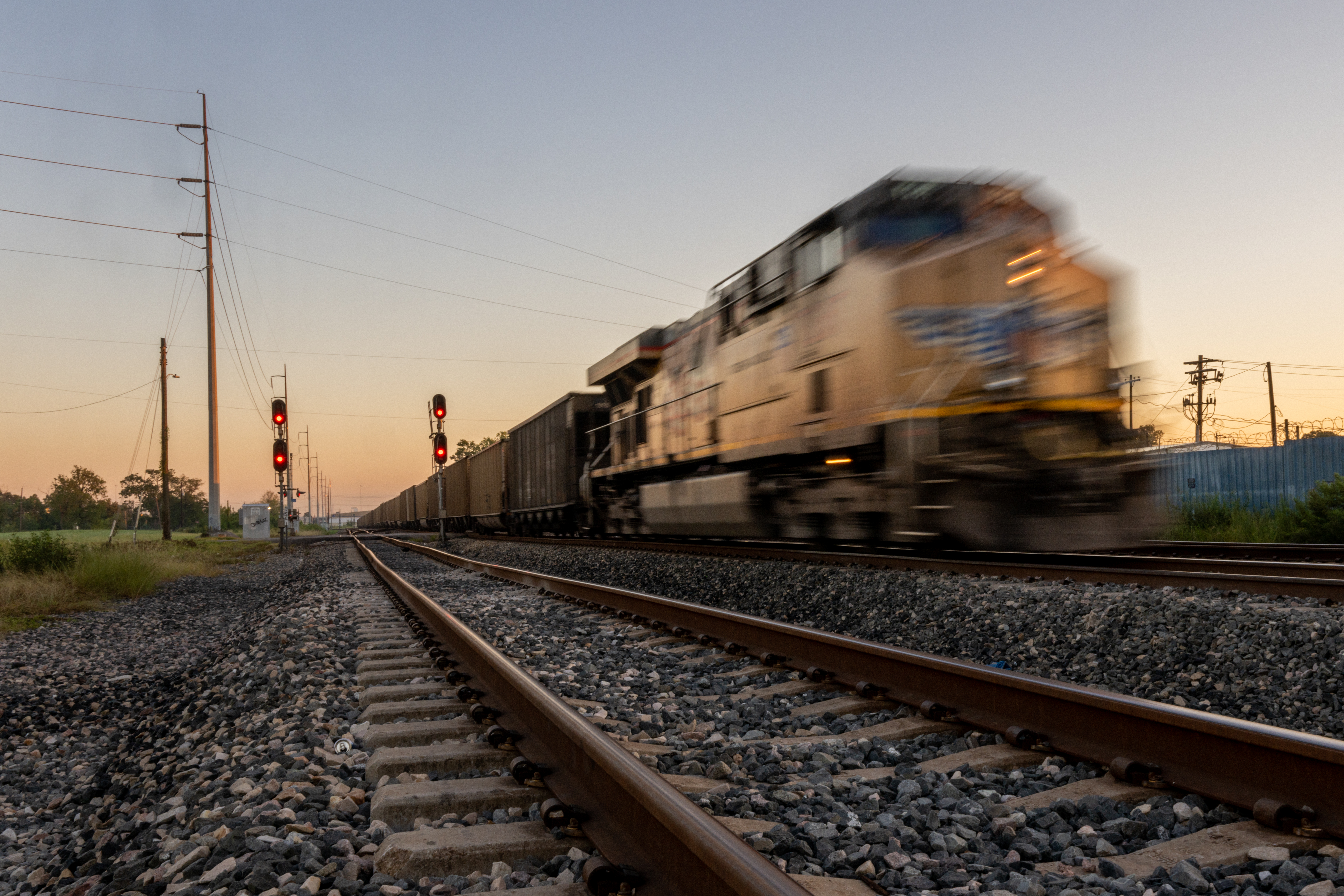Railroads And Unions Avoid Strike After 20-Hour Marathon Talks
Unions agree not to strike as new contract goes up for a vote.
A 20-hour marathon negotiation session between railroads and the two largest railroad workers' unions came to a tentative agreement on a new contract Wednesday, narrowly adverting an economically cataclysmic strike.
Cabinet officials and even the president himself worked long into the night to broker a fair contact. The White House released a statement Thursday praising both sides for acting in good faith, but highlighting the agreement as a win particularly for the reenergized labor movement:
The tentative agreement reached tonight is an important win for our economy and the American people. It is a win for tens of thousands of rail workers who worked tirelessly through the pandemic to ensure that America's families and communities got deliveries of what have kept us going during these difficult years. These rail workers will get better pay, improved working conditions, and peace of mind around their health care costs: all hard-earned. The agreement is also a victory for railway companies who will be able to retain and recruit more workers for an industry that will continue to be part of the backbone of the American economy for decades to come.
Thirteen railroad unions overwhelmingly voted in favor of a strike back in July should the two sides have no agreement by this Friday. A strike would have immediately shut down 30 percent of train freight shipments in the U.S. leading to possible shortages, panic buying and supply chain snags similar to what the country experienced during lockdowns.
Both sides have been at the table since the original contact expired in 2019. Eleven of the unions voted in favor of a contract laid out by an emergency federal bored earlier this summer. This contract would have provided a remarkable 24 percent wage increase for workers going back to 2020 and extending through 2024, including an immediate 14-percent raise. But the two largest railroad unions—the Brotherhood of Locomotive Engineers and Trainmen and the SMART Transportation Division—voted it down for not providing more flexibility in working hours for its union members.
These two unions released their own statements praising the new contract. From the New York Times:
Talks had stalled over a push for companies to improve working conditions, including allowing workers to take unpaid leave to visit physicians. The agreement grants that ability, giving workers one additional paid day off and an ability to attend medical appointments without penalty, labor unions said.
"Most importantly, for the first time ever, the agreement provides our members with the ability to take time away from work to attend routine and preventative medical, as well as exemptions from attendance policies for hospitalizations and surgical procedures," the presidents of the Brotherhood of Locomotive Engineers and Trainmen and the Transportation Division of the International Association of Sheet Metal, Air, Rail and Transportation Workers said in a news release.
The presidents, Jeremy Ferguson of the transportation division and Dennis Pierce of the engineers and trainmen, also said the deal will freeze workers' monthly health care contributions when it expires, ensuring those costs will not increase during the next round of contract negotiations.
"These rail workers will get better pay, improved working conditions and peace of mind around their health care costs, all hard-earned," Mr. Biden said in his early-morning statement. "The agreement is also a victory for railway companies who will be able to retain and recruit more workers for an industry that will continue to be part of the backbone of the American economy for decades to come."
Nearly half of the freight moved across America touches a railroad at some point in its journey to its final destination, including much of the freight from ports. The effects of a strike were already causing ripple affects across the country, with Amtrak canceling thousands of tickets for cross-country trains, which run on freight lines. Amtrak is working to reinstate those trains and reservations Thursday.
The new contract now goes to a vote by the 13 unions members. The unions have pledged not to strike while the vote is ongoing, a process that could take weeks. But the high praise by union presidents for the contract, especially from the last two hold outs, is a good indication that the contract will likely pass.
